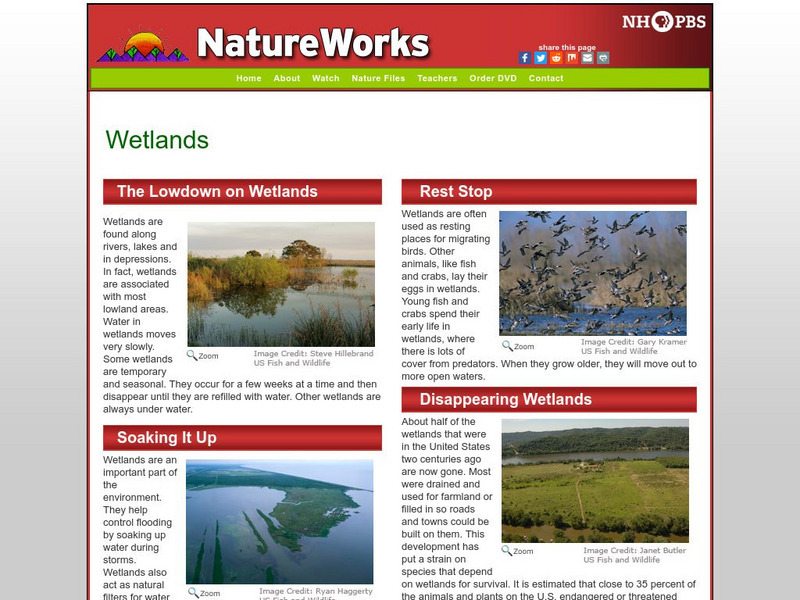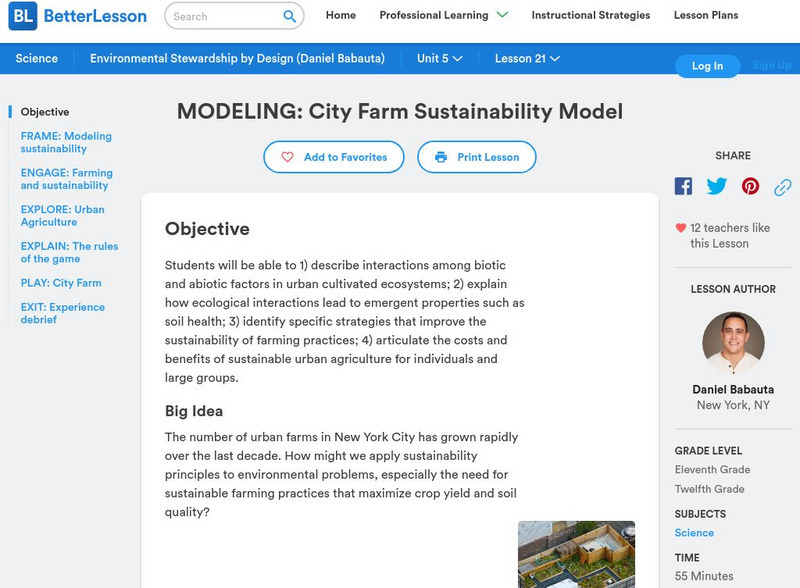TeachEngineering
Teach Engineering: Environments and Ecosystems
Students explore the biosphere and its associated environments and ecosystems in the context of creating a model ecosystem, learning along the way about the animals and resources. Students investigate different types of ecosystems, learn...
TeachEngineering
Teach Engineering: Computer Simulation of the Sonoran Desert Community
The computer program's simulation of a Sonoran desert community should ultimately strengthen the student's comprehension of what is required for a natural ecosystem to sustain itself (remain in balance). This computer simulation program...
TeachEngineering
Teach Engineering: Biodomes
Students explore the biosphere's environments and ecosystems, learning along the way about the plants, animals, resources and natural cycles of our planet. Over the course of lessons 2-6, students use their growing understanding of...
TeachEngineering
Teach Engineering: Got Energy? Spinning a Food Web
Students learn about energy flow in food webs, including the roles of the sun, producers, consumers and decomposers in the energy cycle. They model a food web and create diagrams of food webs using their own drawings and/or images from...
Discovery Education
Discovery Education: Habitats of the World
This site has a lesson to use to start a unit on biomes and animal habitats. This plan incorporates grasslands, temperate forests, tropical rainforests, deserts, polar ice regions, and tidepools.
TeachEngineering
Teach Engineering: Go With the Energy Flow
Students learn about energy and nutrient flow in various biosphere climates and environments. They learn about herbivores, carnivores, omnivores, food chains and food webs, seeing the interdependence between producers, consumers and...
ArtsNow
Arts Now Learning: Exploring Habitats Through Music Composition [Pdf]
In this lesson, young scholars will learn about rondo form and practice a chant. After learning about the structure of the chant, they will work in small groups to create a chant about a habitat. The chants will then be combined with the...
TeachEngineering
Teach Engineering: A Mini World
As learners learn about the creation of biodomes, they are introduced to the steps of the engineering design process, including guidelines for brainstorming. Students learn how engineers are involved in the design and construction of...
PBS
Nh Pbs: Nature Works: Wetlands
Did you know that wetlands are frequently used as resting stops for migrating birds? This is just one of the many interesting facts found within this educational resource. This site features information on the characteristics, types,...
Better Lesson
Better Lesson: What Kind of Animals Live on Farms?
A lesson on sustainability of urban farms in particular in New York City. Students learn how to apply sustainability principles to environmental problems. Students will look at the need for sustainable farming practices that maximize...
ClassFlow
Class Flow: Where Do They Live?
[Free Registration/Login Required] This flipchart contains an introduction page through which teachers can discuss what all living things need. On subsequent pages students will decide which animal does not belong in the habitat shown.
Alabama Learning Exchange
Alex: Beanie Baby Habitats Collaborative Project
With the booming market of "Beanie Baby" type stuffed animals being so prominent in students' lives, this project brings that interest into the classroom through the use of research, science, hands-on experiences, and technology. The...








![Arts Now Learning: Exploring Habitats Through Music Composition [Pdf] Lesson Plan Arts Now Learning: Exploring Habitats Through Music Composition [Pdf] Lesson Plan](https://d15y2dacu3jp90.cloudfront.net/images/attachment_defaults/resource/large/FPO-knovation.png)




